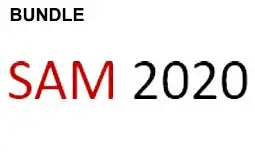A New Hyperspectral Compressed Sensing Method for Efficient Satellite Communications
Chia-Hsiang Lin, Jose Bioucas, Tzu-Hsuan Lin, Yen-Cheng Lin, Chi-Hung Kao
-
Members: FreeSPS
IEEE Members: $11.00
Non-members: $15.00Length: 12:01
11 Jun 2020
Directly transmitting the huge amount of typical hyperspectral data acquired on satellite to the ground station is inefficient. This paper proposes a new compressed sensing strategy for hyperspectral imagery on spaceborne sensors systems. As the onboard computing/storage resources are limited, e.g., on
CubeSat, the measurement strategy should be computationally very light. Furthermore, considering the limited communication bandwidth, a very low sampling rate is desired. Our encoder accounts for these requirements by separately recording the spatial details and the spectral information, both of which essentially require only simple averaging operators. Our measurement strategy naturally induces a reconstruction criterion that can be elegantly interpreted as a well-known fusion problem in satellite remote sensing, allowing the adoption of a convex optimization method for simple and fast decoding. Our method, termed spatial/spectral compressed encoder (SPACE), is experimentally evaluated on real hyperspectral data, showing superior efficacy in terms of both sampling rate and reconstruction accuracy.
CubeSat, the measurement strategy should be computationally very light. Furthermore, considering the limited communication bandwidth, a very low sampling rate is desired. Our encoder accounts for these requirements by separately recording the spatial details and the spectral information, both of which essentially require only simple averaging operators. Our measurement strategy naturally induces a reconstruction criterion that can be elegantly interpreted as a well-known fusion problem in satellite remote sensing, allowing the adoption of a convex optimization method for simple and fast decoding. Our method, termed spatial/spectral compressed encoder (SPACE), is experimentally evaluated on real hyperspectral data, showing superior efficacy in terms of both sampling rate and reconstruction accuracy.



